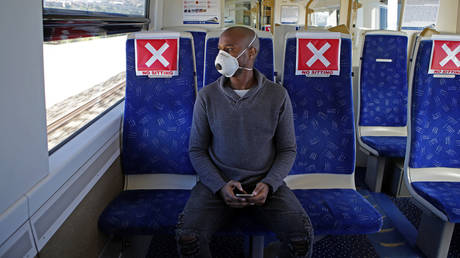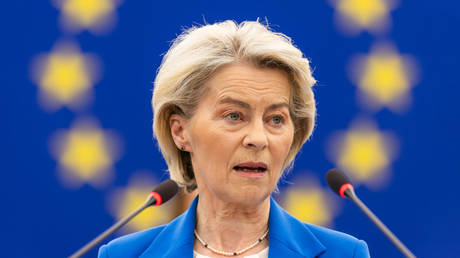
Health advisers have called for South Africa’s government to halt tracing and isolating people exposed to Covid-19, saying the measures aren’t necessary or helpful enough to justify their negative impacts.
The advisory committee to Health Minister Joe Phaahla said quarantining must be stopped, as it’s “no longer viable in the current social and economic climate,” the country’s News24 outlet reported on Saturday. The recommendation marked the latest indication that, in southern Africa, where the discovery of Covid-19’s Omicron variant triggered international travel bans and lockdowns, the new strain has been found to be relatively harmless.
“Crucially, it appears that efforts to eliminate and/or contain the virus are not likely to be successful. Therefore, it is critical that the role of containment efforts like quarantine and contact tracing is re-evaluated,” the Ministerial Advisory Committee (MAC) told Phaahla in a memo last week.
The recommendation came nearly a month after Omicron’s emergence, which set off pandemic alarm bells around the world. Dr. Angelique Coetzee, chairwoman of the South African Medical Association, called the international reaction “a storm in a teacup” because the variant was causing only mild symptoms in her country. She said Monday in a CNN interview that, with Omicron cases now declining, her country is already “over the curve” on the new variant.
The MAC estimated that 60-80% of South Africans now have immunity to Covid-19, through previous infection or vaccination. Moreover, given that the vast majority of people who are infected with the virus never develop significant symptoms, only about 10% of cases have been diagnosed.
“It stands to reason that if the vast majority of cases are not diagnosed, then the vast majority of case contacts are also not diagnosed,” the committee said. “This means that quarantining and contact tracing are of negligible public health benefit in the South African setting.”
South Africa has averaged 30 deaths attributed to Covid-19 daily over the past week, down from a high near 600 in January and around 400 in July.
The MAC also noted that quarantining creates substantial economic and social burdens, including loss of income to those forced into isolation, and staffing disruptions in hospitals and other vital facilities.




